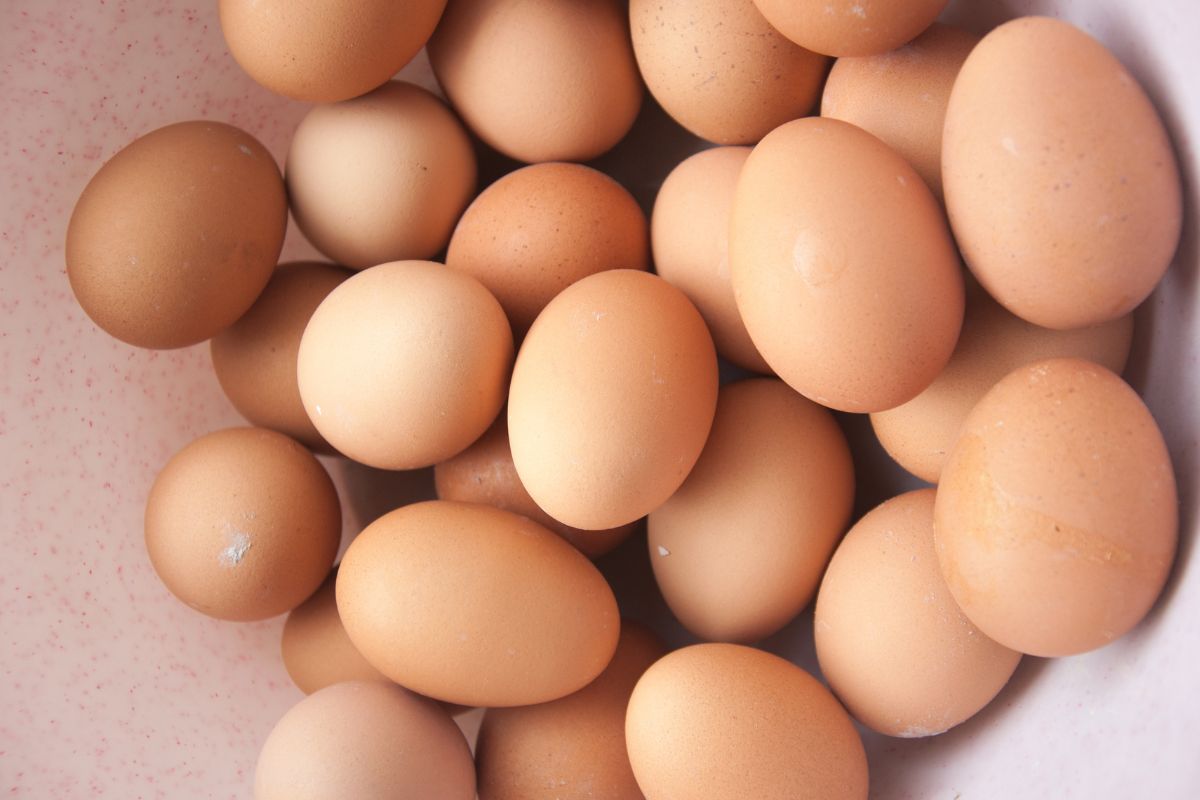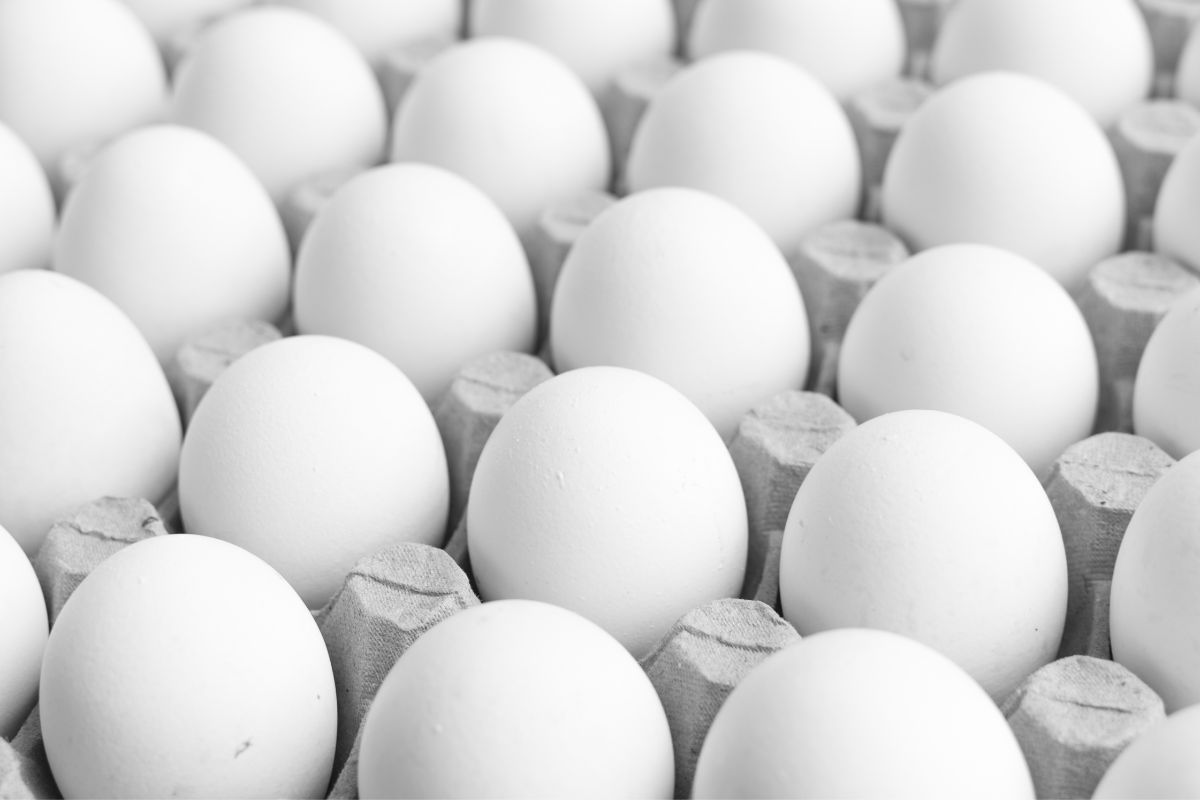Eggs are the food of the people, they are pretty cheap, can be even cheaper with your own chickens, and are full of nutrients.
They are full of protein and other vitamins and nutrients that make our bodies tick.

If you are a vegetarian, the nuances of whether an egg is vegetarian or not can be tricky, and can require your own judgment as well as some facts that might sway the latter.
Keep reading to learn more about eggs, what they are, if they are good for us, and if they are a vegetarian product.
What Is An Egg?
Eggs come from chickens, they are theoretically an unfertilized egg that hasn’t had the chance to turn into an actual chicken.
Eggs are the vessel in which maybe chickens are created but unfertilized eggs do not contain dead baby chickens, they contain the yolk and the white, or what is biologically recognized as the albumen.
The albumen is made up of the vitamins, minerals in an egg.
The albumen is basically what the chick would be fed to turn into a real chick, should the egg be fertilized, but without fertilization this we effectively get the nutrition instead.
The yolk is the central and perhaps most desirable part of an egg. It has the yellow or orange color we often recognize.
The color of the yolk is often taken as an indication of quality, this is true in some circumstances as the color of the yolk is affected by the type of chicken feed used.
But, some modern farmers can actually give their chickens food that can naturally or even artificially dye the yolk to look higher quality.
The yolk contains most of the protein and vitamins of the egg, as well as fats, minerals, phosphorus, calcium, thiamine and riboflavin, which are all beneficial to humans as well as chickens.
The phosphorus contained in the egg yolk is what creates that ‘eggy’ smell.
An egg can take around 24-26 hours to be internally constructed within a chicken.
They would need to be housed in the right conditions through incubation from the hen or artificial incubation, where it takes around 20 – 22 days for a chick to be hatched.
Are Eggs Good For You?

Like anything, in moderation, eggs can be a really useful and efficient source of protein and other nutrients.
In terms of nutrients, eggs can contain 6.5 grams of protein per egg, so if you have two eggs, which is a moderate amount for one person per day, you can easily absorb 13 grams of protein without much effort.
Eggs can also help us absorb more vitamins in the food we eat alongside eggs.
Eggs also only contain around 80 calories, which is low for how much nutrients and protein they contain.
If you are trying to lose weight then eggs can help as they increase your metabolism, cause stable blood glucose and insulin response and satisfy your appetite pretty effectively.
In terms of the nutrients within an egg, there are many. Vitamins A, B5, B12, B2, B6, E, and K are all found in a single egg.
Selenium can fight cancer, phosphoric acids and calcium in eggs can help bones and teeth, zinc aids the immune system, and more. So on paper, eggs can be really healthy.
One big issue with eggs that people often worry about is cholesterol. This is true when you eat a lot of eggs.
Eggs do indeed raise cholesterol, and this is worth thinking about if you consume a lot of eggs a day, say 5 or 6, this can unnecessarily raise your cholesterol.
This said, your liver would theoretically produce less cholesterol if you are inputting more cholesterol into your body. Eggs can theoretically increase the amount of HDL cholesterol, which is actually excellent.
If you are cooking your eggs with lots of butter and oil and then serving them with other potentially unhealthy things, these health benefits can be reduced.
Boiled, poached, and baked eggs are considered the healthiest as they don’t require any oil or butter.
Are Eggs Vegetarian?
Well, yes, they are in the sense that they are not meat.
Eggs are an animal product, they come straight from a chicken, and the agricultural concerns around this can certainly put off some vegetarians.
In terms of fearing you are eating an animal, the larger concern is the impact of increased demand and commercial agriculture practices that can result in a very negative impact on an animal’s life, which many vegetarians find concerning.
You should avoid any eggs from caged hens, while they are cheaper and this cannot be avoided for families that are worse off, if you can afford the small extra price for free-range eggs, this is much better.
Caged egg farms are horrible places and demonstrate the issues with supply-and-demand agriculture.
Having your own chicken coup that you can ensure is being treated the best way possible, can provide you with lots of eggs and works out way cheaper than buying them at the grocery store.
Final Thoughts
If you are a vegetarian, your decision to eat eggs is your own. Being vegetarian isn’t about following rules but trying to limit meat intake and generally be better for the planet.
If you can support free-range egg farms, and the local farms that get agriculture right, buying eggs can actually be very beneficial to solving many of the issues that vegetarians hold dear.
Eggs fundamentally contain many of the things that a vegetarian will lack in their diet, things like calcium, protein, Vitamin B12, and more.
So if eating eggs can make it easier for you to keep your vegetarianism up, then they are a good thing from where we stand.
Frequently Asked Questions
No, when you eat an egg, this is not a dead baby chicken.
An egg that a human eats is unfertilized, meaning that there was never a chick there to begin with. To go from an unfertilized egg to a fertilized egg is quite far apart.
- How To Reheat A Cheesesteak - November 5, 2023
- What Are Three Must Have Kitchen Knives? - September 22, 2023
- How To Protect Edges Of Pie Crust - June 15, 2023








